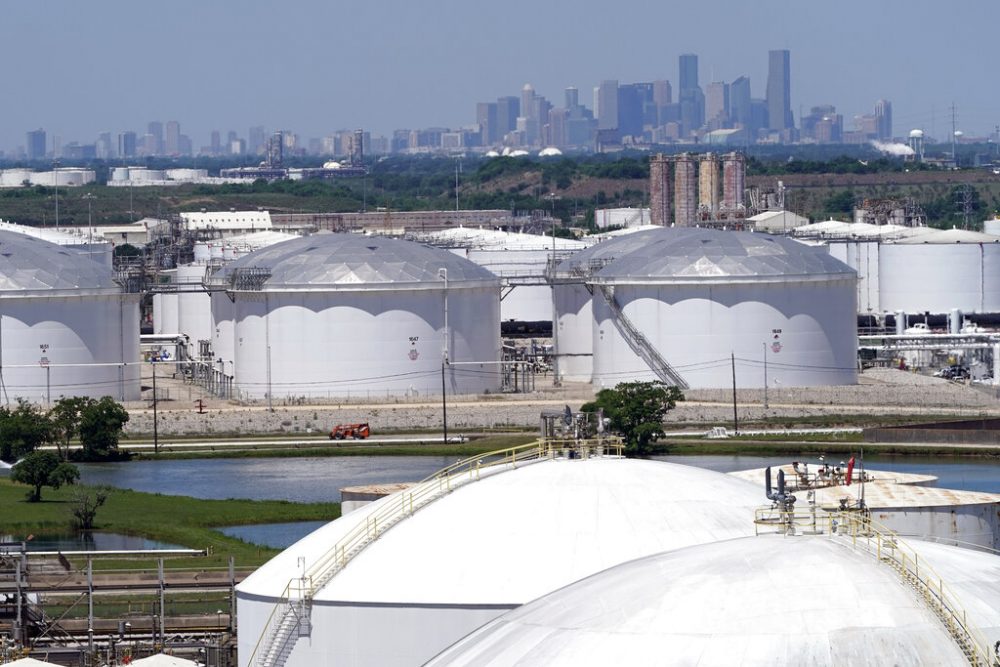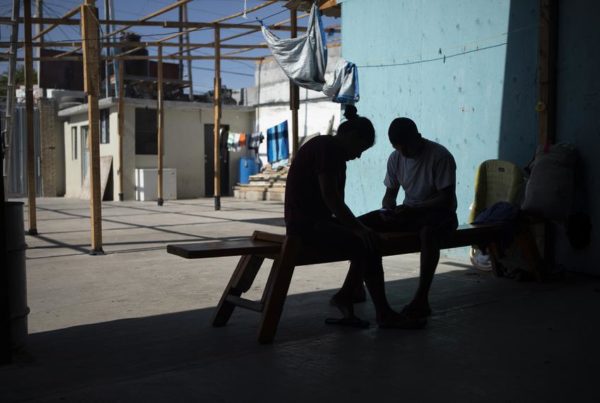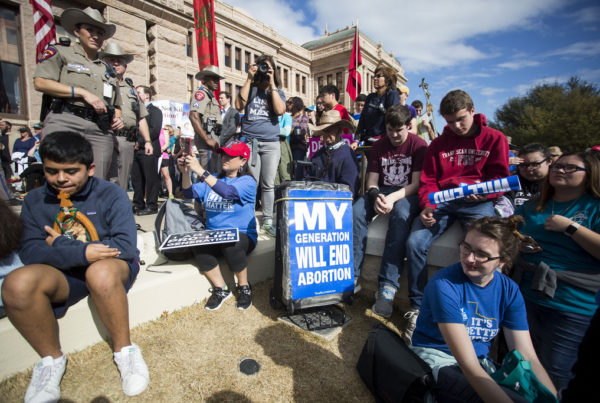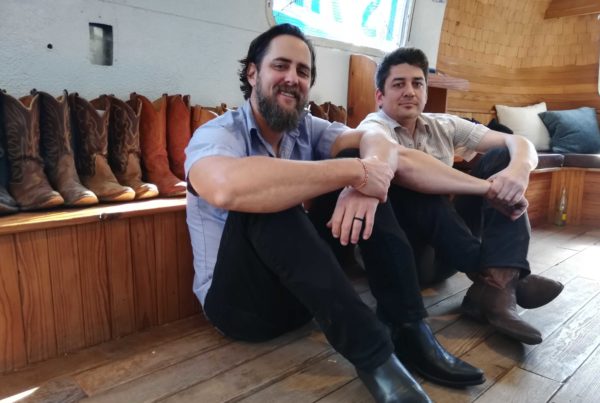Click here to subscribe to Fire Triangle, a new podcast produced by Texas Public Radio in collaboration with Houston Public Media looking at chemical disasters in the state.
Juan Flores was at home in Galena Park when Hurricane Harvey hit Houston in August 2017. As the rain fell, he and his neighbors started to notice an odd smell.
“Everybody’s complaining on Facebook, ‘do you smell that? It smells like chemicals, it smells like petrol,'” he said. “We could all smell it. It smelled so bad.”
Flores, who now manages the air monitoring program for Air Alliance Houston, said during the accident, residents were left in the dark for several days about what was causing the smell.
“At first they didn’t say anything about it, they were all quiet, like, ‘Oh, it was just a slight spill.’ Two days later, it was a little bit bigger than what it was. And then like a couple days later, beyond that, it is one of the biggest spills to ever happen,” he said. “And we’re like, we knew it. We smelled it.”
It turned out to be more than 460,000 gallons of gasoline that spilled out of two storage tanks owned by Magellan Midstream Partners, according to reports the company filed with environmental regulators.
But those were just two of at least 15 above-ground storage tanks that failed during Harvey, and researchers warn that hundreds of tanks along the Houston Ship Channel are still vulnerable to flooding and hurricanes.
Two bills filed this state legislative session hope to address that.
A bill sponsored by Democratic state Sen. Nathan Johnson from the Dallas area would require the Texas Commission on Environmental Quality to come up with tougher rules for both new and existing storage tanks in areas prone to flooding, storm surge and hurricanes. In the past five years, Houston has had six major flooding disasters.
“We are seeing an increase in catastrophic, major weather events that would threaten these types of structures,” Johnson said. “They contain chemicals, substances that are extremely harmful to human health. They’re not cleaned up quickly.”
Though the TCEQ currently has a list of requirements for below-ground storage tanks, above-ground storage tanks are exempt. Johnson’s bill would change that.
Johnson filed a similar bill during the last state legislative session in 2019, which got a hearing, but never made it out of committee for a vote. This time, Johnson said he’s simplified the bill by leaving it up to the TCEQ to work with stakeholders to craft appropriate requirements. He hopes this will make it easier for more lawmakers to get on board.
“Rather than try to prescribe exactly what needs to happen, I’ve simplified the statute,” he said.
A companion bill has also been introduced in the House by state Rep. Mary Ann Perez, a Democrat from Pasadena, but it’s unclear if there will be enough support from the GOP majority for the law to pass.
Industry groups have not said whether they’ll support the bills, though in a statement Texas Oil and Gas Association President Todd Staples said his group “is focusing on ensuring that the numerous regulations and standards for above-ground storage tanks are sufficient to maintain safety and environmental protections for these tanks.”
There are design standards for tanks set by the American Petroleum Institute. But those are standards, not regulations, and experts say hurricanes aren’t factored into tank design the way earthquakes have to be.
“It’s typically not required to consider the surge or flood loads when designing these types of tanks,” said Jamie Padgett, a researcher with Rice University’s Severe Storm Prediction, Education & Evacuation From Disasters Center. “If we were in a seismic region, we’d be required to consider earthquakes.”
Padgett also ran a simulation of a 500-year storm event to see how many storage tanks in the Houston area would fail. She found that around 700 tanks had a greater than 75% chance of failure during that storm event.
Padgett and other researchers are particularly concerned about older storage tanks that were built before the latest industry design standards.
“The challenge is you’ve got old storage tanks that were built with very different design specifications,” said Ramanan Krishnamoorti, the chief energy officer at the University of Houston.
Hurricane Harvey showed us that heavy rainfall can damage the roofs of older tanks, Krishnamoorti said. Storm surge can also rip tanks off their foundations, which happened to a Murphy Oil storage tank during Hurricane Katrina in New Orleans. That tank spilled more than 1 million gallons of crude oil, damaging some 1,800 homes as thick, black crude coated sidewalks, grass, floors and furniture.
Once storage tanks spring a leak, toxic — and often flammable — chemicals spill out, endangering human health and the environment as well as posing a fire risk.
“If you get these out into the open and you have a spark, they can catch fire,” Krishnamoorti said. “Sometimes if the temperature is hot enough, the ignition point can be lower than the ambient temperature, so they can spontaneously catch fire too.”
Though a major focus of the bill are tanks in flood and hurricane-prone areas, storage tanks have also been the source of several other disasters, such as the fire at ITC Deer Park that burned for days.
The bill also calls for the TCEQ to address accident, fire and explosion safety for storage tanks.















